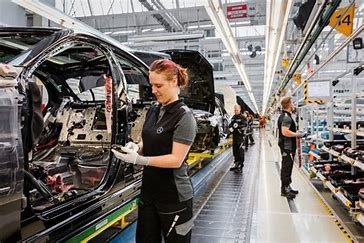
Germany and Italy have thrown a planned European Union ban on new petrol and diesel cars into disarray as they seek exemptions to protect their powerful car industries.
EU diplomats have been forced to delay a key vote on the proposals, which would outlaw the manufacture of combustion engine cars across the bloc from 2035, following a last-minute revolt by the two countries.
The plans were agreed in principle last year and would prevent the sale of new cars unless they are "zero emissions". However, they still require final approval from member states.
Germany, along with allies, is seeking an exemption for cars running on so-called e-fuels, such as kerosene made from waste, which are being developed by some manufacturers.
It has forced EU officials to delay a vote that was due to happen on Tuesday.
The laws cannot pass without Berlin's backing and have led to a split within Chancellor Olaf Scholz's coalition government, with his FDP partners agitating for the EU's plans to be loosened.
Boisterous Comment
Volker Wissing, the FDP transport minister, said: "It is contradictory when the EU Commission calls for high climate protection targets on the one hand, but on the other hand makes it more difficult to achieve these targets through overambitious regulation."
Ursula von der Leyen, the European Commission president, is now expected to meet Mr Scholz over the weekend as diplomats scramble to resolve the row.
Matteo Salvini, Italy’s deputy prime minister, cheered the delay and added: “The voice of millions of Italians has been heard."
The last-minute hold-up is highly unusual, with the upcoming vote previously seen as a formality.